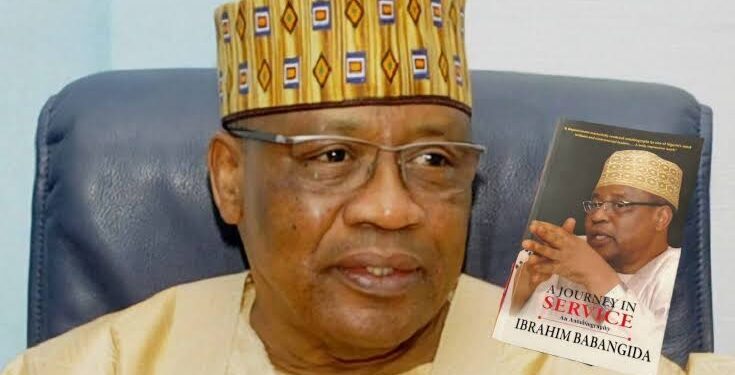… Discloses how Aburi accord ailed
By Abubakar Yunusa
Former Nigerian Head of State, General Ibrahim Babangida (retired), has provided fresh insights into the creation of 12 states by then-Head of State Colonel Yakubu Gowon in 1967, a decision aimed at countering the secessionist movement led by Lieutenant Colonel Emeka Odumegwu-Ojukwu.
The revelations are detailed in Babangida’s newly released autobiography, A Journey of Service, which was launched on 20 February.
The book offers a firsthand account of key historical events, including the political and military strategies that shaped Nigeria’s history during the Civil War era.
Babangida explains that Gowon’s decision to restructure Nigeria from four regions into 12 states was a direct response to Ojukwu’s declaration of the Republic of Biafra on 30 May 1967.
The move, he says, was intended to weaken the breakaway region’s influence and prevent the country’s disintegration.
Following the declaration, the federal government imposed an embargo on shipping activities to and from Biafra.
” When diplomatic efforts to resolve the crisis failed, military action was launched on 6 July 1967, marking the start of the Nigerian Civil War.”
Reflecting on the period, Babangida acknowledges that the Nigerian Army was ill-prepared for full-scale war. Having primarily been involved in peacekeeping missions, the army lacked combat experience.
Furthermore, the military had been significantly weakened by the 1966 coups, which had led to the loss of several trained officers.
He also sheds light on the deep political tensions that contributed to the conflict.
Gowon’s rise to power in 1966, he notes, was contested by Ojukwu, who insisted that Brigadier Babafemi Ogundipe, then the most senior army officer, should have taken charge. This dispute further widened the divisions within the country.
He said in an attempt to ease tensions, Gowon engaged in dialogue with regional leaders and took steps to foster national unity. One such move was the release of Yoruba leader Chief Obafemi Awolowo from prison in August 1966.
” Despite these efforts, violence against Igbos in northern Nigeria persisted, leading to mass displacement and fuelling further unrest.”
Babangida also highlights the failed peace initiatives that followed, including an attempted reconciliation conference brokered by Ghana’s then-Head of State, Lt-General Joseph Arthur Ankrah.
According to him ,the inability to reach a peaceful settlement ultimately led to a prolonged and devastating civil war, which lasted until January 1970.”











